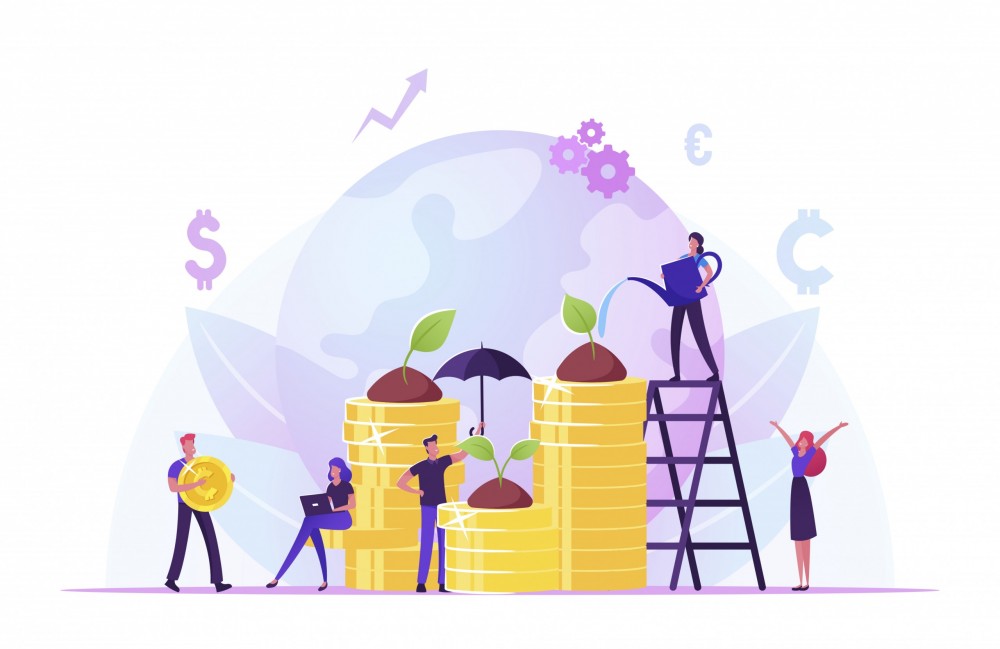The importance of corporate social responsibility
Though it has long been around, corporate social responsibility is expected to be a priority during the aftermath COVID-19 and beyond
Catherine Burgess //June 24, 2021//
The importance of corporate social responsibility
Though it has long been around, corporate social responsibility is expected to be a priority during the aftermath COVID-19 and beyond
Catherine Burgess //June 24, 2021//
As many know, throughout COVID-19, the residential real estate industry boomed with residential home sales hitting their highest peak since 2006.
Other industries like online retailers, liquor stores, meal prep delivery services, fitness equipment companies, telehealth services and more were also seeing unprecedented sales numbers.
Meanwhile, food insecurity was at its highest rate in 20 years, and unemployment was at the highest rate since data collection began in 1948.
As a result, corporate social responsibility (CSR) had a direct spotlight: restaurants donated meals to frontline workers, distilleries made hand sanitizer to give out for free using byproducts, clothing companies were producing and donating masks.
Though CSR has long been around (the term came to popularity in the 1960s), “the concept and ambit of Corporate Social Responsibility has exponentially increased in the recent past” and is expected to be a priority during the aftermath of COVID-19 and beyond.
There are many ways for businesses and corporations to implement CSR efforts that are impactful: supporting the health of the planet, implementing better labor practices, philanthropy and donation services, volunteer work, etc.
The end result of a good CSR strategy includes tangible and intangible benefits–it creates a better work environment for your employees, your customers will take notice and, most importantly, it’s the right thing to do.
Let’s dive deeper into the data behind CSR and why you should consider making it a priority:
CSR attracts and retains talent
CSR demonstrates to employees that a business cares more than just their bottom line. More than 80 percent of millennials consider CSR efforts when deciding where to work, and 70 percent are actually willing to take a 30 percent pay cut to work for a company with strong social values.
Furthermore, research also shows that there is a 50 percent reduction in employee turnover when employees are engaged in CSR programs.
Customers take notice of CSR and make decisions accordingly
Studies show that companies with a fully integrated, authentic CSR strategy can expect significant returns on their CSR investment.
Inc. magazine detailed a number of enormous payoffs that come from when “a company identifies areas of social impact that fit with its core strategy, products or services, and operations.
It makes a commitment, dedicating resources to these social impact projects that are material to the company. It manages and measures social impact performance with clear key performance indicators.”
Companies with a fully integrated CSR program could see sales increase by as much as 20 percent, 20 percent of their customers will become staunch advocates for that brand, and for publicly traded companies, shares could increase by 6 percent.
Most of all, CSR is ethical
Economic inequality is growing deeper and deeper in the U.S. Income inequality in the U.S. is the highest of all the G7 nations and the wealth gap between America’s richest and poorest families more than doubled from 1989-2016.
Corporate social responsibility is a way that executive members of companies can make strong, lasting decisions to give back to their communities and the causes that they care about.
Following this unprecedented year, employees, potential employees, customers, shareholders, etc. will remember which companies, of those that were able to, paid it forward during the pandemic.
According to Alliance Manchester Chair Professor Hongwei He, the pandemic is the perfect acid test of many firms’ CSR record and strategy.
COVID-19 caused many companies to evaluate and prioritize how they give back, and we hope – and expect – to see increased levels of CSR stick around for long after the pandemic is over.
Catherine Burgess is a Compass Boulder founding agent and founder of Burgess Group | Compass and The Food Security Project. The project, which was launched in March 2021, utilizes Burgess Group | Compass’ listing of the historic McKenzie Farm to grow thousands of pounds of nutritious produce for Boulder and Broomfield counties. Burgess Group is partnering with the McKenzie Family, Community Food Share, Boundless Landscapes, and Earth’s Table on the project.


























